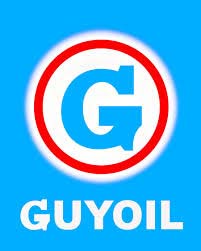The Guyana Oil Company (Guyoil) recorded a reduction in profitability in 2017 compared to 2016 due to the poor performance of the sale of gasoline, which accounted for 58 per cent of revenue in 2017 according to the Guyoil 2017 annual report. This contrasted with an increase in sales generally.
The sales of motor gasoline, the company’s flagship product, decreased by 4.97 per cent in 2017 with the company losing market share. “Efforts have been made in 2018 to arrest this decline,” chairman of the board of directors Mark Bender said in his remarks in the report.
According to Bender, the net profit after taxation was $1.849 billion in 2017 compared to $2.609 billion in 2016, a decrease of $0.76 billion or 29.13 per cent.

Guyoil imports, distributes, stores and markets motor gasoline, gasoil, kerosene, fuel oil, ultra-low sulphur diesel (ULSD) and Castrol lubricants. The ULSD, regarded to be environmentally friendly, was introduced to the Guyana market in 2017.
The distribution network includes 52 dealer-owned dealer-operated and eight company-owned company-operated service stations.
In terms of sales revenue, it was $35.259 billion in 2017 compared to $31.939 billion in 2016, an increase of $3.320 billion or 10.39 per cent.
Cost of sales was $30.465 billion compared to $25.889 billion in 2016, an increase of $4.576 billion or 17.68 per cent.
Volume sales achieved in 2017 were 1,309,093 barrels compared to 1,287,211 barrels in 2016, an increase of 21,822 barrels or 1.7 per cent.
In terms of its corporate social responsibility, Guyoil contributed $6.240 million to community-based organisations and institutions involved in sports, education, culture and charitable work, Bender said.
On marketing, he said, the company’s drive to expand its market share for fuel and lubricants dictated an aggressive posture with deliberate emphasis on aggressive pricing strategies and continuing staff training and development. He said there is also need to improve customer service across the board.
Nevertheless, he said, training continued and customer sales representatives attended seminars on customer service, marketing and product knowledge. During the year, some 3,960 man-hours of in-house and external training were done.
On management and staff, he said, the streamlining and restructuring of the company, which began in 2015, was completed and fully implemented.
The industrial relations climate, he said, continued to be stable and cordial during 2017. Employees received salary increases of two per cent to ten per cent across the board in keeping with the government’s salary increase. An annual incentive bonus of four weeks was also paid to employees.
Trade debtors were being “vigorously” pursued with the objective of collecting all debts. Legal action was taken where necessary and the company’s credit policy, Bender said, “is being strictly enforced.”
In terms of expansion and future projects, he said, Guyoil continued its programme to consolidate and strengthen its delivery capacity.
Capital expenditure for 2017 was $777.502 million.
Capital expenditure included land and buildings, $19.9 million; plant, machinery and equipment, $13.1 million; office furniture and fittings, $30.5 million; motor vehicles, $256.1 million, and construction work in progress, $457.7 million.
According to the report of the directors, confirmation of the final dividend of $1.2 billion was declared by the eight-member board. The directors’ fee was in the sum of $3.680 million. The audit of Guyoil’s 2017 financial statement was done by PKF Barcellos Narine and Company on behalf of the Audit Office of Guyana.






